Jamil Jan Kochai, author of “99 Nights in Logar,” recommends heartrending literature on America’s war against Islam
M y novel 99 Nights in Logar — about a small group of young boys searching for a ferocious guard dog in a small village in Logar, Afghanistan — primarily stems from a series of events I recall quite often (and quite nostalgically) from a three-month trip I took to Afghanistan in 2005 when I was twelve years old. Though I’ve lived in the shadow of the “War on Terror” since 2001, this trip to Afghanistan was the first time I really came face to face with the surreal nature of America’s war in Afghanistan.
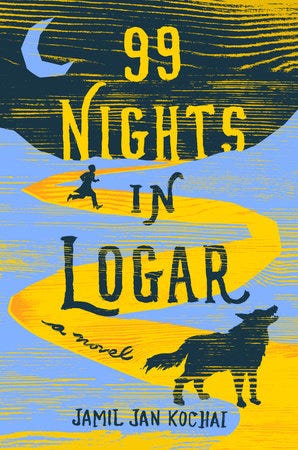
I watched the machinations of the “War on Terror” (its surveillance, its checkpoints, its weaponry, its barricaded semi-colonies where foreigners are safely separated from the native population, its behemoth Humvees, its reports, its stories, its legends) in awe and in horror, and in many ways, I wrote my novel 99 Nights in response to this odd sense of being both constantly overwhelmed by joy (joking and running and swimming and laughing and skipping stones) and by fear.
Approximately eighteen years after the US began its “War on Terror”, the world (especially the Islamic world) has only been made more violent and more chaotic as a result. Nonetheless, out of this absurd carnage has appeared some incredible, heartrending, and oftentimes surreal books. Here are just a few:
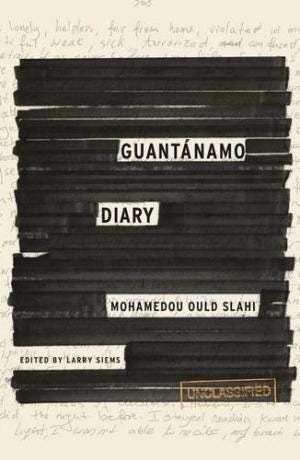
Guantánamo Diary by Mohamedou Ould Slahi
In Guantánamo Diary, Mohamedou Ould Slahi gives a harrowing account of the fourteen years he was held without charge or trial at Guantanamo Bay. He wrote his memoir in captivity. Thus, large portions of the text were censored and omitted by the U.S. government in a very Orwellian fashion, giving the text this almost unintentionally (horrifically) postmodern aesthetic. In this way, the book becomes a chilling testament to America’s state of censorship, Islamaphobia, historical erasure, torture, and our very understanding of how, and to whom, violence should be inflicted.
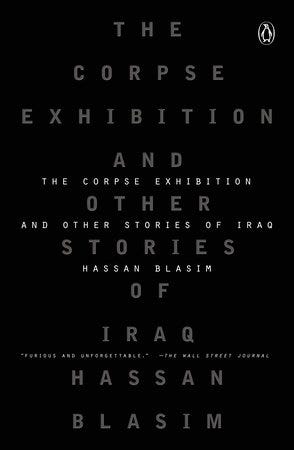
The Corpse Exhibition: And Other Stories of Iraq by Hassan Blasim
If you’re tired of reading American perspectives on the War in Iraq, take a look at The Corpse Exhibition: And Other Stories of Iraq by Hassan Blasim, an Iraqi-born writer. His collection of short stories The Corpse Exhibition is probably the most soul shattering book on war I’ve read since Isaac Babel’s Red Cavalry. Blasim takes on the atrocity of the American War in Iraq with a horrifying (and awe inspiring) sense of absurdism and unflinching realism.

The Association of Small Bombs by Karan Mahajan
Written from multiple perspectives (bombers and victims and everyone in between), Karan Mahajan’s The Association of Small Bombs weaves an incredible tapestry of stories and lives in the wake of a “small” bombing in Lajpat Nagar, Delhi. Terror, in Mahajan’s novel, never exists in some sort of an ideological vacuum, rather Mahajan demonstrates how violence and terrorism (both of the militant and the state sponsored variety) are produced and reproduced from a complex set of material and political circumstances. As much as The Association should be lauded for its impeccable prose and complex characters (as it has been), the novel should also be recognized for its aversion to a reoccurring simplification of how and why “terror” occurs.
Karan Mahajan on the Inner Lives of Terrorists & Victims in Today’s India
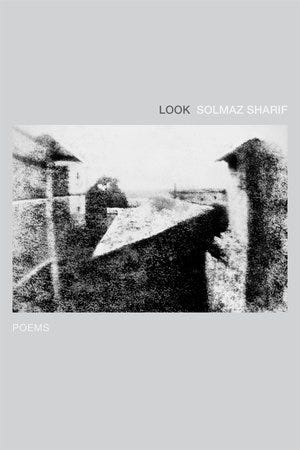
Look by Solmaz Sharif
I read Solmaz Sharif’s poem “Reaching Guantanamo” in my office at UC Davis, around noon, on a sunny day sometime toward the end of spring. I can recall, vividly, almost every detail from the moment of my reading because this poem has left such an indelible mark on my sense of seeing and being seen. Much of Sharif’s work focuses on the violence of language (and the language of war), so it seems fitting that this poem would have such a visceral and devastating effect upon my body (my skin, my heart rate). I shook. I shuddered. I nearly wept. Kafka once said “A book must be the axe for the frozen sea within us.” Look is one of these books.
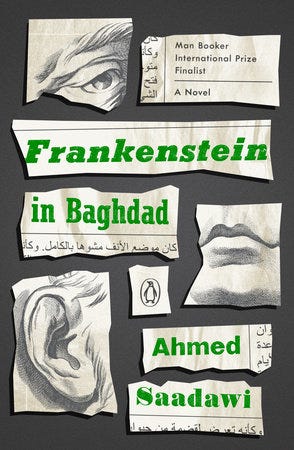
Frankenstein in Baghdad by Ahmed Saadawi
A drunken junk seller collects the abandoned body parts of bombing victims and begins to stitch together a Frankenstein-type-monster in Baghdad, Iraq during the early years of the American occupation. Somehow Ahmed Saadawi’s Frankenstein in Baghdad only gets wilder from there as the Frankenstein creature begins to take vengeance upon the killers of the victims from which he was created. Darkly comic and beautifully written, Saadawi’s Frankenstein becomes a surreal depiction of the monstrosity of the American War in Iraq itself.
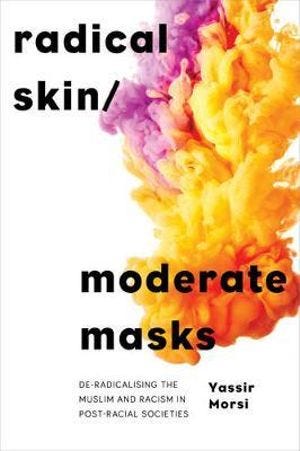
Radical Skin, Moderate Masks by Yassir Morsi
A lecturer in politics at La Trobe University, Yassir Morsi draws upon Frantz Fanon’s classic text Black Skin, White Masks to explore questions of how, and if, Muslims are able to represent themselves politically. What does it mean to “de-radicalize”? Or to become “liberal” within the context of the “War on Terror”? Unafraid to delve into experiences from his own life, Morsi writes a brilliantly theorized text, without falling into the pit of Academic jargon. Especially for young Muslim writers, Morsi’s Radical Skin, Moderate Masks is a must read.
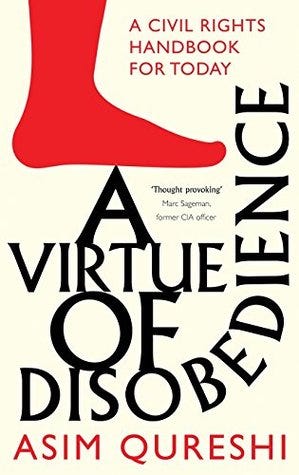
A Virtue of Disobedience by Asim Qureshi
In a time when Muslims across the globe are being pressured (by Imams and Feds alike) to submit to the will of oppressive states and regimes for the sake of peace and obedience, Dr. Asim Qureshi, Research Director at the advocacy organization CAGE (more on them later), has written a philosophical treatise extolling the virtue of disobedience.
Drawing upon his own experience working for CAGE — which campaigns against state policies targeting Muslim communities and advocates for the rights of Muslim political prisoners held without trial — Islamic scholarship, and histories of civil disobedience in the US and South Africa, Qureshi argues that resistance to systemic oppression is not only universally virtuous but is an essential character of Islam itself. A brilliant, sensitive, and necessary text. Please consider donating to CAGE.

About the Author
Jamil Jan Kochai is the author of 99 Nights in Logar. He was born in Pakistan and grew up in the United States. His story “Nights in Logar,” upon which this debut novel is based, won the 2018 O. Henry Prize. He currently attends the Iowa Writers’ Workshop.


7 Books About the War on Terror was originally published in Electric Literature on Medium, where people are continuing the conversation by highlighting and responding to this story.
Source : 7 Books About the War on Terror











